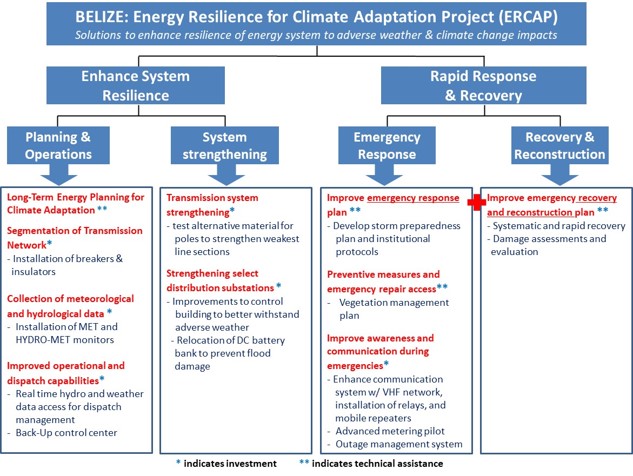Belize is a Central American country that faces a regular onslaught of hurricanes and tropical storms from the Caribbean ocean. These circumstances are expected to be exacerbated because of the impacts of climate change. The energy sector is vulnerable to such extreme weather events, which is reflected in the resulting substantial damages, loss of services, and lost revenue. Therefore, enhancing the resilience of the energy sector is a development imperative for Belize.
The Government of Belize secured the support from the World Bank and funding from the Adaptation Fund of the Global Environment facility (GEF) to help them strengthen their energy system, enhance its resilience, and place it in a position to progressively adapt to the impacts of climate change. The result was the Energy Resilience and Climate Adaptation Project (ERCAP).
In preparing the project, a novel analysis was undertaken to map in real-time load- dispatch flows with various damages sustained during extreme weather events that effected energy services in the country. It also analyzed the efforts to respond and recover. These assessments helped identify the vulnerabilities of the power system in Belize, which, with input from experts within the power company and other experts, helped design a comprehensive set of actions to improve energy resilience in the country.

Migara Jayawardena and Noureddine Berrah were part of the World Bank team that helped carry out the power system vulnerability analysis and helped the client design the components/activities of ERCAP.
To download the report that details the power system vulnerability analysis undertaken to develop the ERCAP project, please click here.
Publication "Building Sustainability and Resilience in the Energy Sector" by the Asian Development Bank (ADB)
